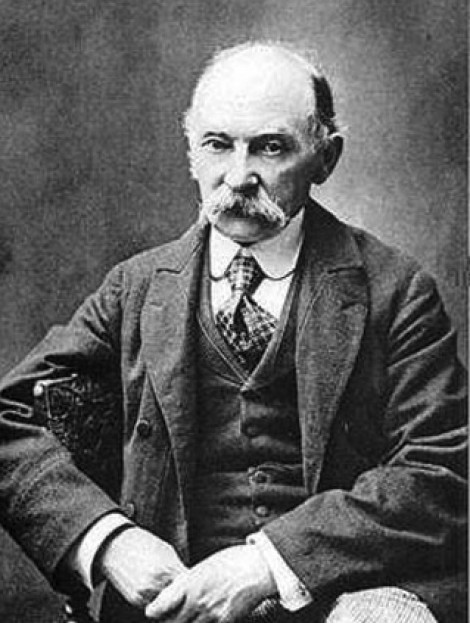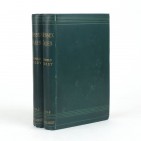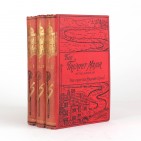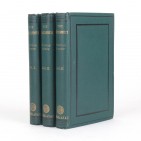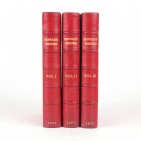HARDY, Thomas
“The business of the poet and the novelist is to show the sorriness underlying the grandest things and the grandeur underlying the sorriest things.”
Born in rural Dorset, Thomas Hardy learnt a love of the countryside from his father and his passion for literature from his mother, using his understanding of the rustic life as material in both his fiction and his poetry. He trained as an architect, but wrote poetry whenever possible, going on to trying his hand at writing novels, having a mild success in 1872 with the first of his “Wessex Novels”, Under the Greenwood Tree. A few years later Far From the Madding Crowd (1874) was so successful that it enabled him to give up architecture to write full time. His primary output over the next twenty years were novels in which he explored his sense of pessimism about the tragedy of human life and the social constraints imposed by Victorian mores. Tess of the D’Ubervilles (1891) caused an outcry as the concept of having the central character as a “fallen” woman outraged the sensibilities of Victorian morality. Jude the Obscure (1895) aroused even more debate, and the furore it raised over its themes of conflicted sexuality and social unrest caused Hardy to stop writing novels and to return to his first love, poetry, which he concentrated on for the remainder of his life.
Hardy’s career as a writer spanned over fifty years, during which time he saw the enormous changes in the countryside caused by the Industrial Revolution, and the move in literature from the Romanticism of the 19th century to the Modernism of the early 20th century. He was an acknowledged influence on such writers as Virginia Woolf, D.H. Lawrence and Robert Graves. In The Common Reader, Woolf wrote: “it is no mere transcript of life at a certain time and place that Hardy has given us. It is a vision of the world and of man’s lot as they revealed themselves to a powerful imagination, a profound and poetic genius, a gentle and humane soul.”
Thomas Hardy died on 11 January, 1928, at the age of 87. His ashes were buried in Poets' Corner at Westminster Abbey.
Please scroll down to see our current stock of rare first editions by Hardy.
Add to favourites
